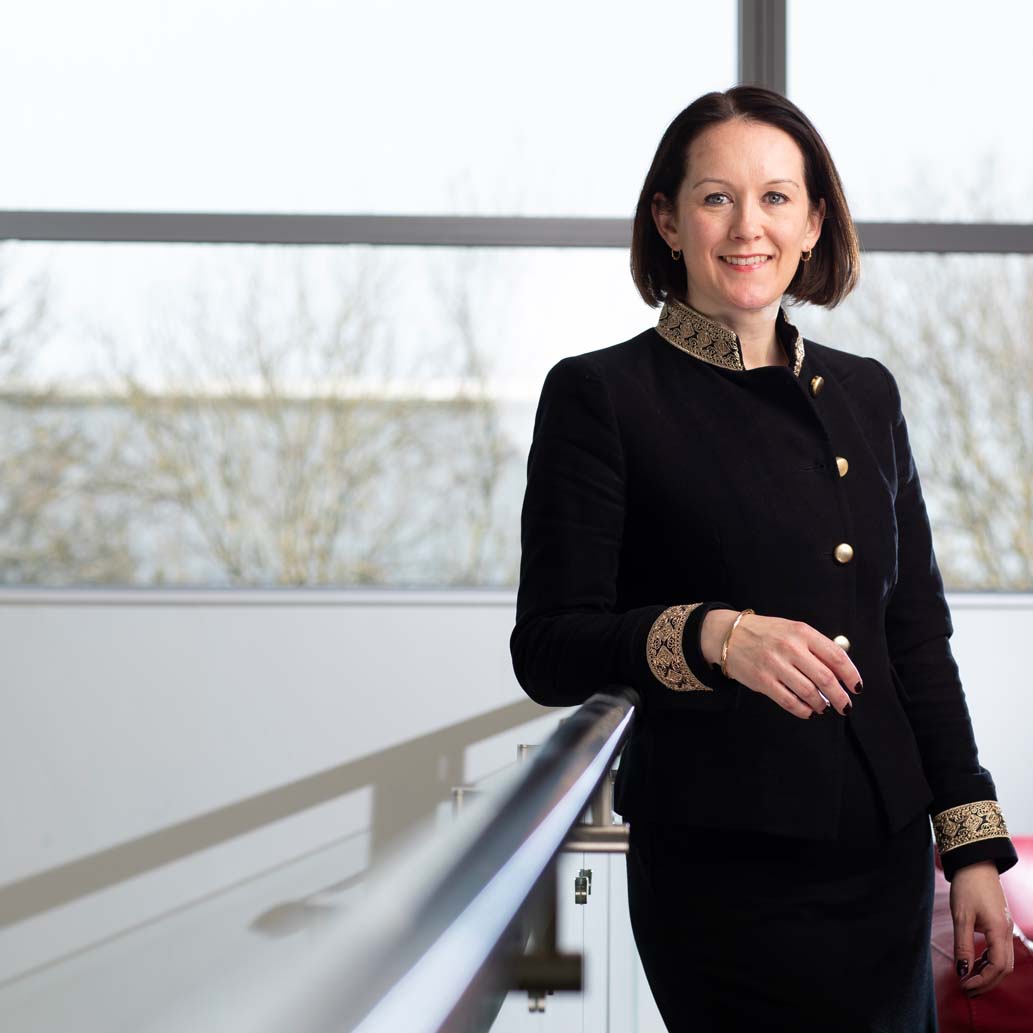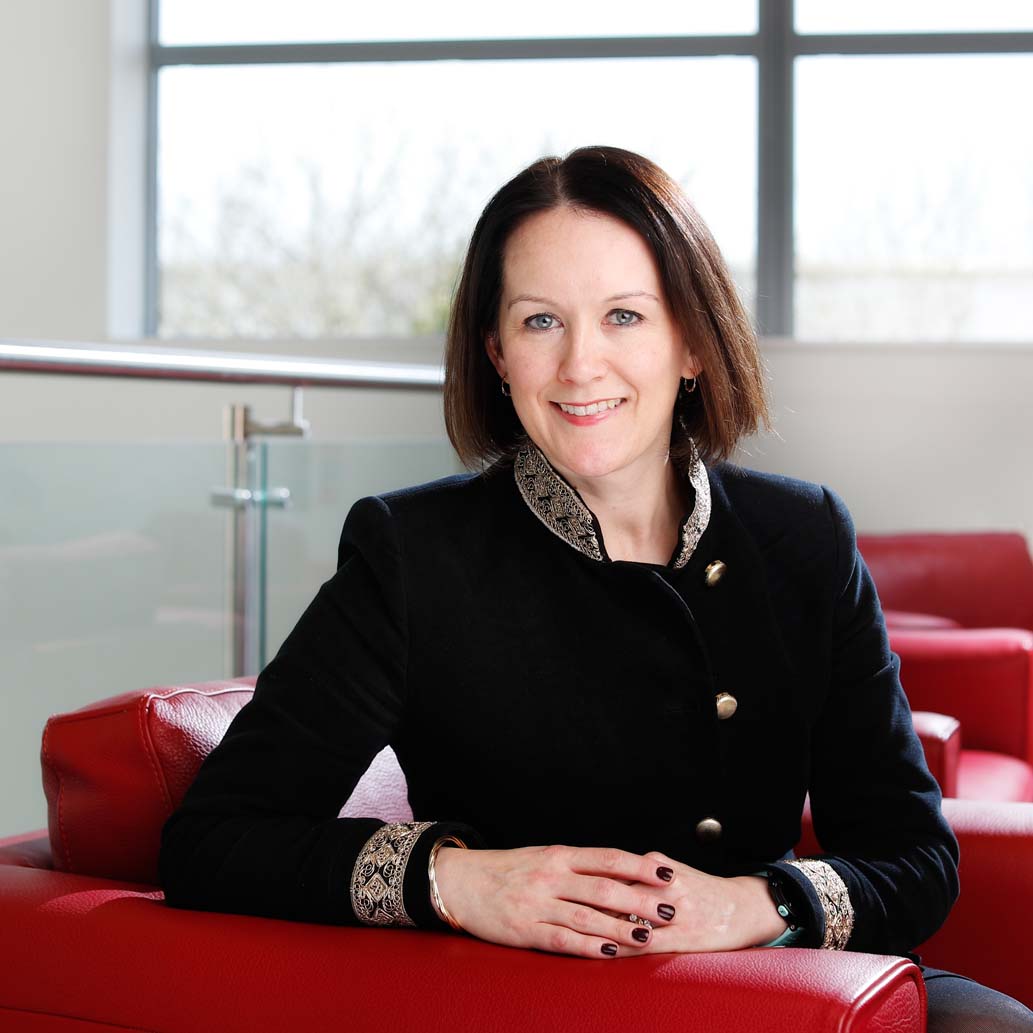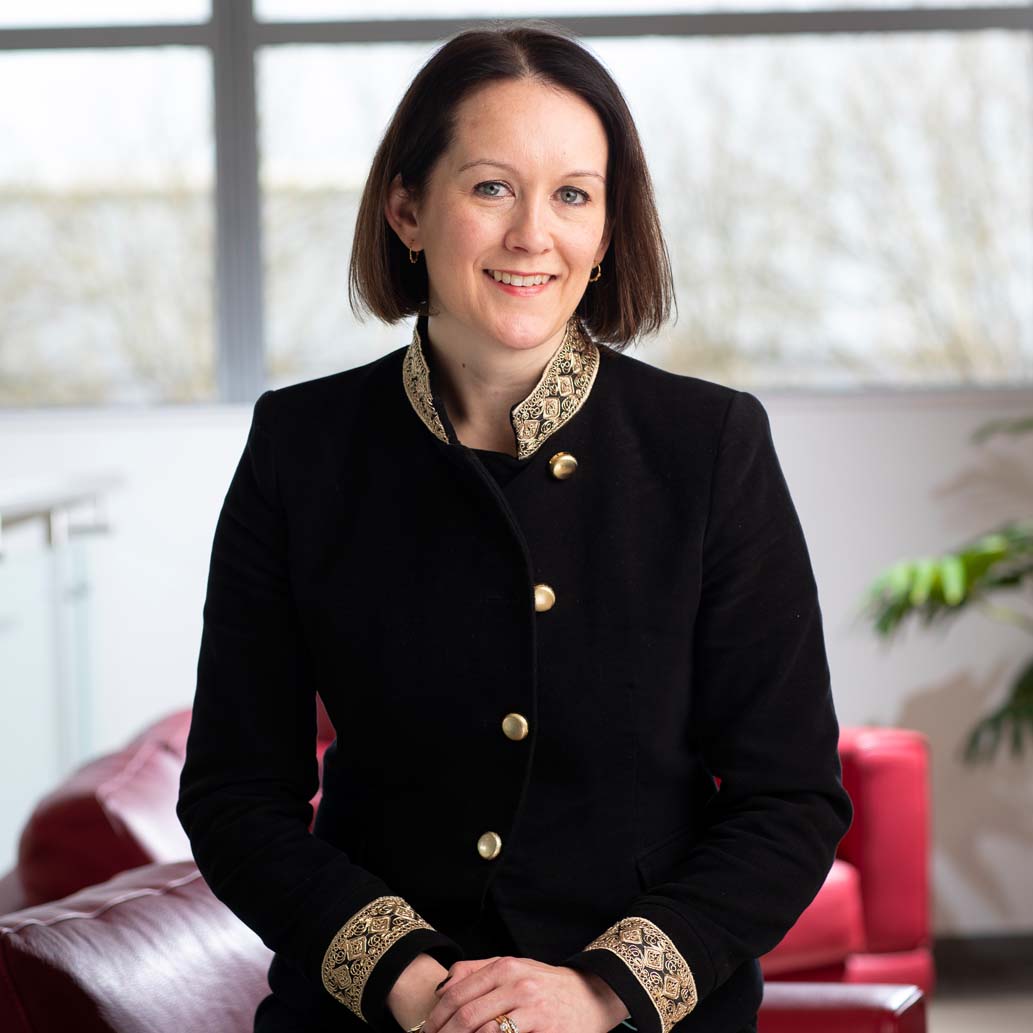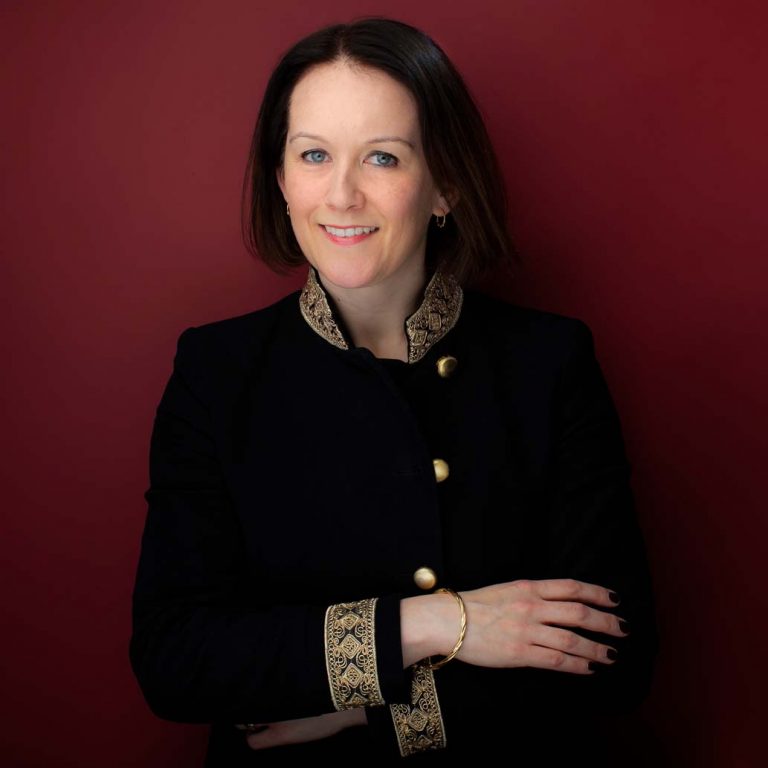Laura, tell us about your early life and how you wandered onto the path of HR.
My earliest experience in the world of work was in various shops at weekends and holidays around my A-levels studies. So, when it came to deciding what subject to study at university, I took a fairly pragmatic approach, a degree in retail management. About two years in, I began to realise that the studies were very general and so I switched to an HR degree, which I thought would provide me with more of a focus. Almost immediately, I realised that it was a very good decision and I felt much more attuned to the studies. I graduated, applied for a number of grad openings and my first post was in utilities, in the HR department at Welsh Water. I was very lucky to land that role literally two days after my exams had finished, so off to a flying start and relieved that I could start paying off my student loans. At first, I wasn’t exposed to too much in the way of strategic HR – in fact, for a couple of years I was stuck with administrative work – but I think if you can survive that then you’re cut out for HR. I was always curious, observed and listened to colleagues and it was clear that the profession was really transitioning at this point, so the potential for the future kept my interest burning. It was also diverse – white and blue collar employees and heavily unionised – plus the business went through a series of M&As, TUPEs and reorganisations. So, as the department became overwhelmed, I was increasingly brought in, which was hard work, but just the sort of experience I needed. Sure enough, I began to evolve into more of a HR business partner, increasingly involved in the more strategic aspects of the business – which back then was quite unusual at such an early stage – and there was enough momentum there to keep my interest for seven years and I received some great mentoring along the way. Then came a point where I reflected on my portfolio of experiences and realised it was a sound foundation and it was time to move on.
I started looking for my next role with a more career strategic perspective and I had to be realistic that, despite cramming in a lot of activity in a short space of time, I really wasn’t that experienced. I applied for a role in the public sector, which was perhaps a sign of my naivety, because it turned out to be not a good decision – although with hindsight you look at the positives and it was a useful piece of experience. It was at the Forensic Science Service which then was part of the Home Office, had six labs across the UK and it was where the police across the country took their pieces of forensic evidence. Each unit was primarily made up of scientists, as you would expect, who were also equipped to stand up in court and give evidence from a forensic point of view. It all sounded very interesting, but it was one of the areas of the public sector that at the time was in a state of flux. I was interviewed by someone who turned out to be a consultant brought in to transform the HR department. After my notice period, my start date arrived, only to be told that my point of contact had left and it wasn’t long before I realised that what had been described to me in the interview didn’t match up with my new reality. I had prepared myself to be part of a leadership team, charged with making the organisation more commercial – as the forensics market in the UK had become open to competition – so turning a stilted public sector organisation into a vibrant and reactive private sector business, cutting ties from the home office, sounded bold and exciting at the point of interview. In my mind, I was formulating approaches for ambitious culture change plans and commercial imperatives, hoping that my previous OD change experience would carry me. However, it really didn’t pan out like that, because change requires more than words and, as impressive as many of the people were in their scientific fields, without the will to change, it’s a strong headwind and I quickly realised my position was untenable.

Tell us about your next career move.
I spotted a job advert in a trade journal, early 2006, announcing British Telecom was launching Openreach and was hiring for a newly-forming HR department. I applied for the post of HR Business Partner with not a great deal of optimism. After the first interview I thought “well that’s that…”, then came the second interview and then a third, at the telephone exchange in Mayfair London, where I was duly offered the job. I was quite shocked and I remember floating rather than walking around Selfridges in nearby Oxford Street, trying to come to terms with the fact that I had just landed a senior HR job with BT, in central London. This proved to be pivotal to my overall career and I was with BT for eight years. I worked across three units, all business partnering roles, apart from two stints in specialist roles – one was about a year in resource planning, what we would call strategic workforce planning now – that included a big voluntary redundancy programme and hiring people with the skills we needed for Openreach, which wasn’t easy as the broadband market was booming. I really look back at my time at BT as the moment I really won my stripes, the sheer scale of the business is something else, for example Openreach was just for the UK and that was 34,000 people out of the then 110,000. I was there at a time of great transition for the workforce, primarily managing the massive scale of voluntary redundancy, whilst BT shaped up to the new digital dawn.

What happened next in your career journey?
I wanted to continue to broaden my experience and knowledge base, in particular employment law, but I didn’t feel ready to join another big corporation. So, I decided to throw my net a bit wider and was accepted for a role at Eversheds, which I thought would present me with a wide variety of experiences and I wasn’t disappointed. I spent three years in the legal consulting team and was involved in the widest array of employment law issues and, I have to say, it was time well spent and has certainly been highly beneficial since. At that point, I felt I was ready for the next big foray into corporate life and a colleague from BT made me aware of a HR Business Partner role at General Electric Aviation, part of GE, which in terms of size and employee numbers even eclipsed BT – 330,000. It was a business partner role, very much a shop-floor, blue collar and heavily-unionised environment, plus some 150 management and business leaders. I also had responsibility for some other sites, including the European sales team and On Wing support team, both based at Heathrow. So multi-site responsibility, but based in Wales, which housed the manufacturing teams of about 1,400 – building and overhauling jet engines from around the world – it was an enormous place and an incredible sight to see. As you might expect, there were lots of challenges in the business, a very traditional manufacturing organisation with layers of supervision and management grades. From an HR point of view, it was quite hands-on, less strategic but really all about driving change at every level. There were some moments of real frustration, but operating at this scale was an experience I will never forget, working with a really determined and close knit HR function. Although hugely challenging, it filled in some of the missing jigsaw pieces in my experience set. So after nearly 20 years I decided I was ready to make a crucial move for my first HR Director role, in a business that was at a scale that I could really make my mark.
A resourcing firm had been keeping me posted about potential opportunities and one in particular grabbed my attention and it was here at Moog. It’s a company I hadn’t come across, but some research revealed that it was a global supplier to aerospace and industrial markets. Strangely, although I was terrified of flying, I had this strange compunction to go for the job – last year I flew 52 times, so if this didn’t cure my fear, nothing would. My research revealed a really compelling company, but it was the scope and scale of the role that really appealed, a truly global role with a good deal of autonomy. This was my first HR Director role and, most notably, very much an HR business partner role which is where I feel most at home.

Tell us what Moog represents in the sector and its primary areas of business?
Headquartered in the US, in New York State, with a presence in around 22 countries, Moog manufactures products and advanced engineered solutions for the Aircraft, Space, Defence, Medical and Industrial markets. Our Aircraft Group, for example, provides the design, integration and certification support for the complete Primary Flight Control Actuation System on the Boeing 787. This system controls all 21 flight surfaces and includes both electrohydraulic and electromechanical servoactuators and all associated control electronics. In the Industrial part of our business where I work, our products could go into any aspect of machinery from; ‘human-in-the-loop’ flight and driving simulators, high performance F1 cars and autonomous robotics, where light weight and high performance are required, to traditional applications such as steel mills and power stations, where something more robust is required. Compellingly, Moog is highly-regarded in these fields and very much seen as the cutting-edge of our markets. That comes with its own unique pressures, in markets where technical reputation can be won and lost in an instant and technology can be rendered to the legacy museum. That aside, our products are phenomenal, as someone with a flying phobia, who always seems to be seated next to the wings, at 38,000 feet up, you’re putting a whole lot of faith in a piece of machinery keeping you up in the air.
What was it about the culture and the ambition of the company, looking ahead in these constantly changing technology markets?
The culture at Moog is both intriguing and compelling. We’re not the type of business that hammers the values at every opportunity, emblazoned on posters about our facilities and I think it’s a sign of a great place to work that you begin to uncover the values as you bed in, rather than learning about them as you step through the door via some cliched messages. The massive part of the intellectual culture is innovation and it’s been really interesting for me as an external joiner to experience that. To put that into some context, when my Netherlands-based business leader showed me around the facility there, which is our centre of excellence for electric test and simulator products, he gave me incredible insight into how Moog was changing that part of the business.
What is the global reach and future ambitions of the business?
Right now we operate in 20-plus countries and, in fact, the industrial part of the business has the most global presence. The space and defence group is primarily based in the States, servicing the US military and space industry. The aircraft group – whilst US led – has a big presence here in the UK, as well as in India and the Philippines. Again, I’ve never experienced such cultural synergy in a business that doesn’t constantly thrust values on people, but something quite magical happens with a sort of shared culture.
That element of trust has changed as businesses have had to evolve and people have greater autonomy and freedoms, is it a difficult balance in a technology and innovation environment?
With freedom comes responsibility and I think if somebody isn’t totally committed and engaged, they stand out a lot more prominently today than in the old employer/employee framework of the past. There’s no hiding place if people don’t live up to their responsibilities. That level of trust is fundamental to success, to really trust people with the opportunity to create and innovate at very high and critical levels is the ultimate litmus test. It is a culture shock for some and even myself – coming from the more traditional frameworks of BT and GE – I had to adapt quickly and there were times when I wondered if I’d made the right decision. It took me an awful lot longer to adapt than I had anticipated, it’s definitely a journey where I’m finding out about myself as well as the business.
What are the commercial and industry challenges for the business and how are these being addressed?
Looking at my area, Industrial Group covers a very broad spectrum of products and technologies, some of which I have talked about. Because of the broad scale, there are at any one point aspects of the business which are changing, whilst others are emerging, such as our medical device division. Again, each sector in the business has very little in common with the other, they are all totally different products in a myriad of markets, so that requires great agility and prescience to anticipate market flows, customer requirements and ever-changing technology. But the most important aspect of this business, which we’ve revisited a number of times today, is innovation, the creation of new technology and products to explore and enhance our offering to new and existing markets. As technology evolves, the worst thing any business can do is be static, – we’ve all seen market-leading companies that have floundered with that mentality. So constant innovation drives the business strategy and whilst that is incredibly energy and resource sapping, it’s also an absolute imperative and it does bring challenges and reward in equal measure all along the way. On top of that, there are always macroeconomic impacts to consider too. A prime case in point would be the automotive sector, which is itself facing challenging and changing times, what with the emergence of the EV market. The bottom line is, you can’t hold back the tech wave, you have to ride with it.
You've talked about values today and stressed the difference between those on the poster and those in the heart, what would you say are the critical values?
It’s a changing and challenging world and I genuinely think the key is kindness and consideration. As I’ve said, Moog is highly-revered in its markets, but it has great humility and that is a powerful combination. However, humility is somewhat hidden when talent and skills are weighing up their options and so key for us in HR is striking that balance and a lot of that radiates out from your current workforce. If the vibes are generally good, it builds a momentum all its own. In terms of social media, it’s not something we’ve supported. There is resistance, understandably, it’s an industry that does rely on elements of secrecy and so we see that as a challenge going forward. Of course, everyone looks at Glassdoor and can gain access to unsolicited views of what an employer represents and how it is benchmarked against peer firms, so there really is no hiding place. It’s not so much about having a really strong employer brand, it’s about whether reality lives up to it. We have to face facts, whether here in Tewkesbury or at our HQ in Buffalo, New York State, in terms of finding critical talent, it’s tough out there.
Indeed, transparency is not an option anymore, organisations are virtual goldfish bowls.
Exactly, but if at the heart of the business, the story is good, there is no need to worry. It’s understanding what works – what engineers and technicians want more than anything is autonomy, creativity, exploring horizons, latest technology and not being confined to a “job in a box”. Imperatively, opportunity has to meet ambition square on. In a multifaceted business such as this, you really cannot work any other way than to have people who are agilethinking and always up for the next challenge, however different the new is from the old – I think that’s the challenge for most employees.
As you continue to manage through the Coronavirus crisis, what are your present key concerns and challenges for your employees and the organisation, how are you preparing the business for a staged return and what opportunities are you exploring for new working practices from your learnings from this crisis?
I’m really proud of how Moog has treated our employees during such a difficult and unprecedented time. With teams in China we have been tracking and managing the virus since the middle of January which helped as it spread to Europe and the US because we had a head start learning about measures we could take to protect the health and wellbeing of all our employees and their families. Our early actions were focused on health and wellbeing, getting everyone possible working at home. And for site-based staff who were unable to work at home we have adjusted shift patterns to help spacing on site, ensured the right equipment and support is in place. We also made commitments around pay for everyone and reviewed the measures each government has put in place to consider what support could be offered. After those initial weeks of protecting our employees health and wellbeing we turned our attention to the business health. Reviewing and adapting our supply chain has been a significant factor, especially where we have business units in countries that have enforced a complete shut down like India and Italy. However, in most cases we are operating at close to normal levels with the commitment and dedication of our wonderful Moog people.












